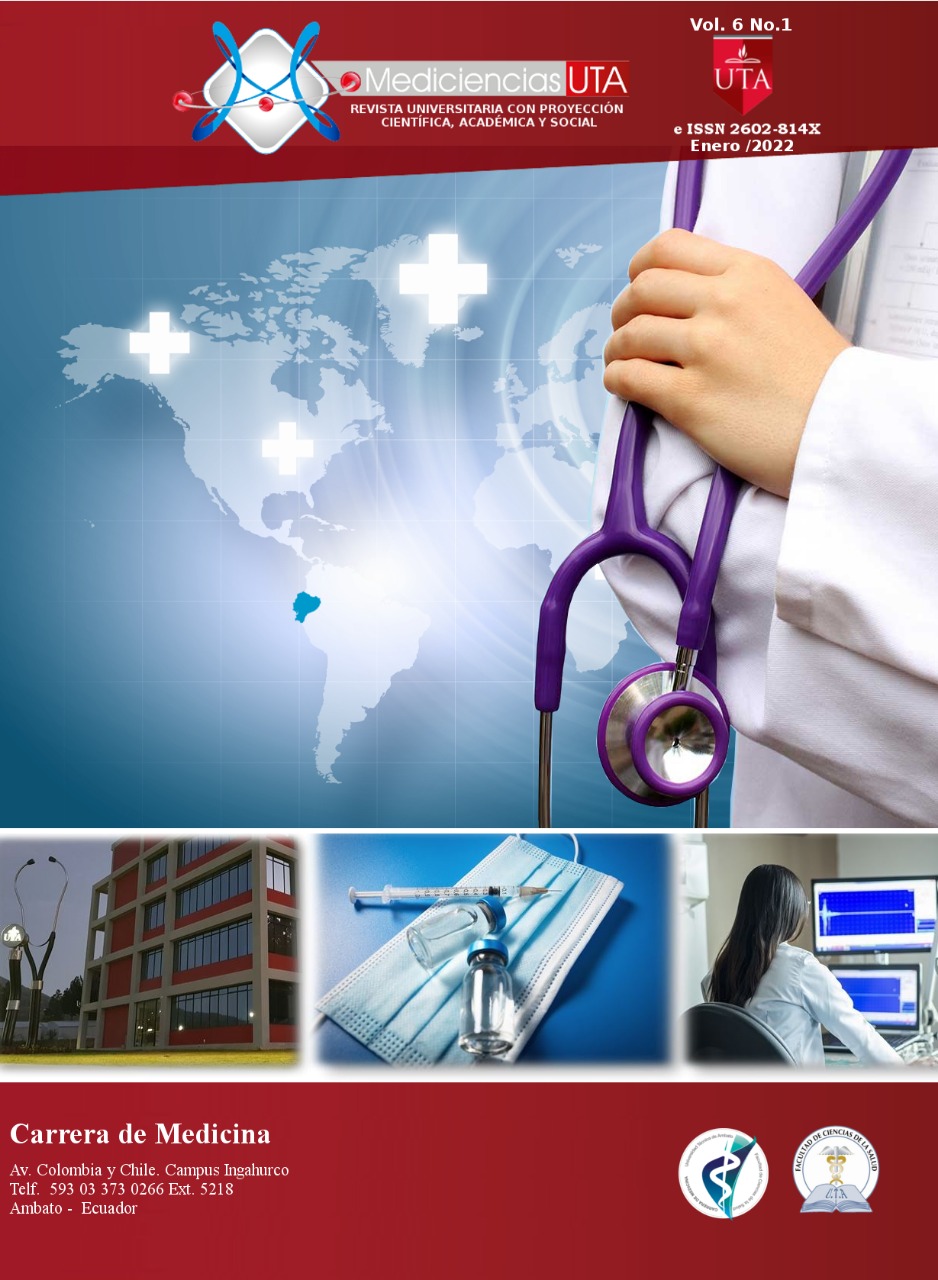Factores de riesgo de la preeclampsia
Contenido principal del artículo
Resumen
Introducción: La preeclampsia es una de las complicaciones que puede presentarse durante el embarazo parto o puerperio que aumentan la morbimortalidad materno perinatal y neonatal, siendo estas patologías las primeras causas de muerte materna en el país y una de las principales causas de muerte materna a nivel mundial. Objetivos: Demostrar aquellos factores que puedan desencadenar un episodio sintomatológico referido a un cuadro de preeclampsia. Materiales y métodos: Se realizó una revisión bibliográfica de artículos científicos enfocados en los factores de riesgo de la preeclampsia Resultados: Los factores de riesgo que se analizaron fue la nutrición en una mujer embarazada, tiene que ser correcta debido a que debe cumplir con las necesidades propias y la del bebé, es por ello que el gasto energético total con una ingesta diaria de 2150 kcal y 2200 kcal. Otro factor fueron las edades de interés obstétrico siendo el parto pretérmino en un 9,8 % de las madres jóvenes (20-35 años), en un 23,3% de las mujeres adolescentes (< 20 años) y en un 33,3% de las mujeres adultas (> 35 años adultas). Posteriormente se pudo recopilar una serie de datos post-análisis estadísticos, que mostraron una clara importancia de las condiciones cardiovasculares como un factor importante para presentar preeclampsia, así como cofactores que pueden acompañar o generar cualquier estado atípico en el sistema cardiovascular. Conclusiones: Se encontró que los principales factores de riesgo de la preeclampsia, son una desnutrición marcada, el sobrepeso, la edad, condiciones cardiovasculares como el hipercolesterolemia, hipertensión arterial, diabetes, y enfermedades respiratorias relacionadas con el tabaquismo que pueden desencadenar un cuadro cardiovascular atípico.



